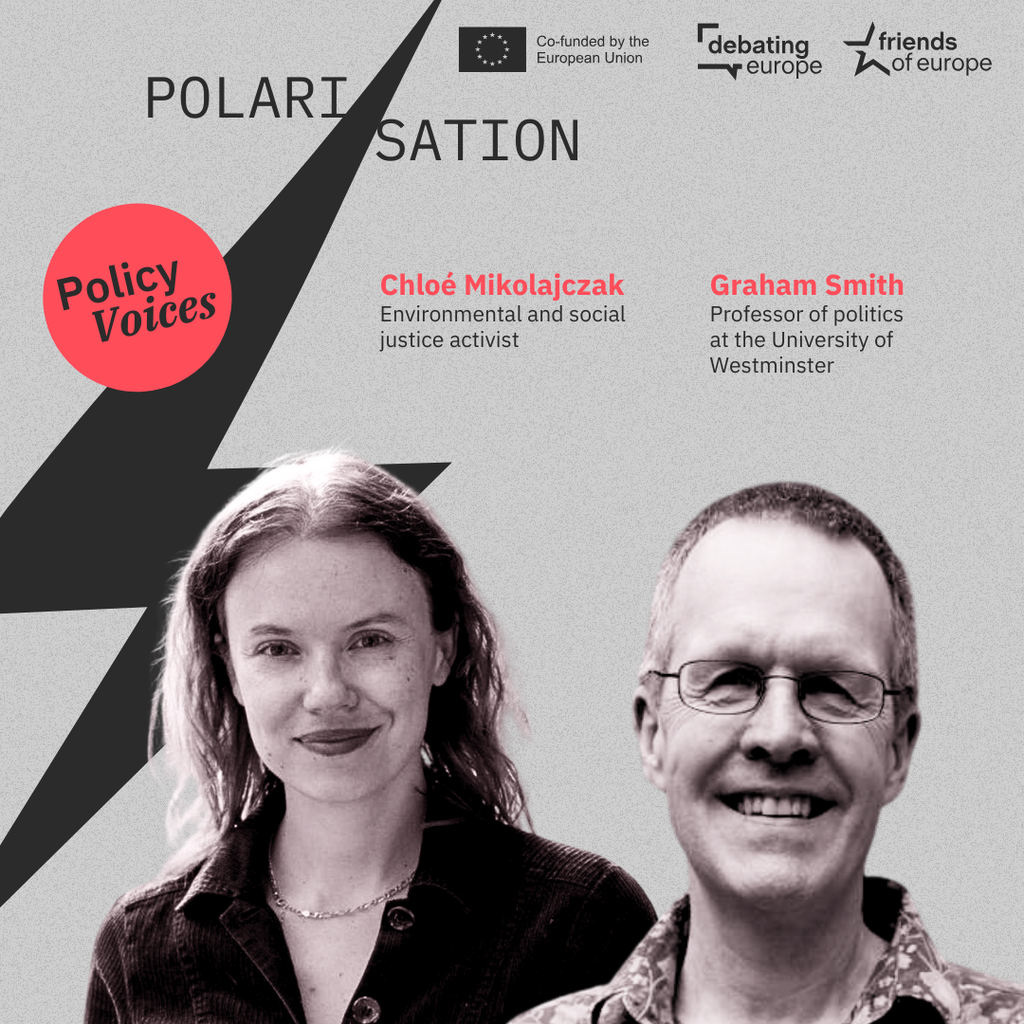A bold vision for a climate-neutral and competitive Europe
Next event In person & livestreamed

- Area of Expertise
- Climate, Energy & Natural Resources
Climate, Energy & Natural Resources
The EU space programme turbocharges environment monitoring
Europe’s Earth Observation satellites, unmatched and admired the world over, deliver terabytes of data to improve our lives, support EU policy and help fight climate change. This positive conclusion was shared by 30 space industry experts at the Friends of Europe policymakers’ dinner in Brussels on 19 November 2019. Yet such leadership can only be maintained through further investment in the EU space programme – while boosting governance, cooperation and societal empowerment.
Space is highly strategic. Besides the European Space Agency’s (ESA) Galileo satellite navigation system operating globally since 2016, seven Copernicus Sentinel satellites now measure the environment, monitoring the land and sea as well as air quality, while also ensuring the security of EU borders and coasts. This programme is often called a ‘jewel in the crown’ for Europe, reinforced by cooperation between ESA and the European Commission, and feeding into European and national policies. In 2018, data from Copernicus was the most downloaded data on NASA websites in the United States.
An environmental asset
Copernicus plays a key role in monitoring the effects of climate change, including global sea level rises and extreme weather. Satellite data is factual and cannot be disputed by global warming sceptics. This data is widely used in many other environment-related fields, from agriculture to deforestation to disaster reduction. It also provides vital information for the EU when implementing international agreements like the UN 2030 Agenda for Sustainable Development and the Paris Climate Agreement.
Debate participants highlighted how the EU’s space programme and Earth Observation (EO) capacities will support four new European Green policies: a carbon-neutral Europe by 2050, a biodiversity strategy by 2030, a renewed EU strategy for the Arctic, and sustainable and resilient agriculture. New Copernicus missions are planned to support these ambitious policies from 2021. Methane, an under-estimated greenhouse gas, will also receive more attention through a new monitoring campaign involving ESA and NASA. A representative of the United Nations Environment Programme noted that in Switzerland, EU space data plays a major role supporting the World Environment Situation Room, an interactive platform displaying statistics for global temperature and CO2 levels. Space data and computers will ultimately build ‘digital twins’ for the Earth, offering insight into the changes in our physical world.
More funding needed
Europeans interested in the environment will discover the incredible capacities and value of their space programme. Yet surprisingly this only costs an average of €10 per EU citizen – a tiny amount relative to other space-faring nations like the US and India. Although €16bn is earmarked for the next EU budget from 2021 to 2027, this may not be enough to meet European ambitions for space and Earth observation, as several dinner participants remarked.
Others noted the urgency of strengthening Europe’s IT infrastructure – especially for processing and storing data from space. One third of the planet’s computing needs originate from Europe, yet the continent only provides 2% of those needs. If the EU wants more autonomy and sovereignty in space, it must spend far more on fast computers, big data, cloud storage and artificial intelligence – or risk being left behind by competitors in the US, Russia and China.
Copernicus data is also valuable for businesses like Austria’s Geoville, which provides geo-information to 135 countries. “It’s the world’s best tool, providing data that can improve or save lives,” said the firm’s representative, citing forest management in Honduras and World Bank micro-credits. “It’s also brilliant for Europe’s prosperity and jobs.”
Governance will be a major issue as the private sector becomes more involved in space missions. More guidelines are also needed to ensure that space data is open source and used for social good. Furthermore, to empower European citizens, it is critical the EU and national governments educate the public on the benefits of the space programme.
Next event In person & livestreamed

Past event In person & livestreamed

Past event In person & livestreamed

Past event In person & Livestreamed





Stay informed
We use cookies and similar technologies to adjust your preferences, analyze traffic and measure the effectiveness of our campaigns. Learn more about our privacy policy.